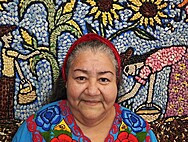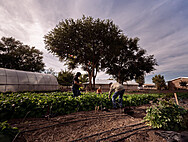Local Food Solutions
Our Local Food Solutions project is working to improve community health, wealth, self-determination, and food sovereignty by placing locally and sustainably-grown produce and food products into dollar stores in the South Valley of Albuquerque, New Mexico. The project is an opportunity for these retail chains to build their business, improve access to healthy foods in disproportionately impacted communities, and bolster the local economy by supporting area farmers. This collaboration of community organizations, public health experts, and environmental and economic justice advocates is demonstrating that a sustainable, local procurement policy is possible, profitable, and replicable for commercial adoption by dollar stores in other communities and nationally.
Across the United States, communities of color, low-income neighborhoods, and Native/Indigenous peoples endure disproportionate exposure to toxic chemicals and pollution that harms their health. Many of these communities also lack access to healthy foods. These combined impacts contribute to higher rates of chronic conditions such as asthma, diabetes and heart disease.
With the COVID-19 health and economic crisis now upon us, food security is a growing concern for people in this country. Millions of people, particularly the disportionately impacted, rely on dollar stores for food and other household needs, even though dollar store products are often filled with toxic chemicals. Roughly 75 percent of people in the US live within five miles of a Dollar General store, for example, and the discount chain recently became one of the top 25 food retailers in the nation.
For these reasons, our coalition of community leaders, public health experts, and environmental and economic justice advocates are encouraging Dollar General to sell locally-grown fruits and vegetables at four stores in low-food access neighborhoods in Albuquerque, New Mexico. This would be an opportunity for Dollar General to build its business, improve access to healthy foods in disproportionately impacted communities, and bolster the local economy by supporting area farmers. Our goal: to demonstrate that a sustainable, local procurement policy is possible, profitable, and replicable for commercial adoption by Dollar General’s more than 16,000 stores across 44 states.
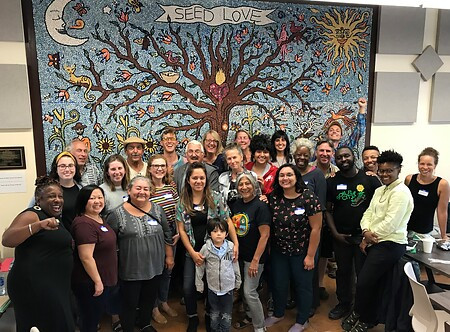 A pending collaboration between Dollar General and local food producers, supported by anchor institutions in the community and other project partners (see list below), would reflect a commitment to building community health and improving food access. Together we can demonstrate how retailers, healthcare institutions, community groups, and local food producers can advance public health, equity and economic benefits by increasing access to healthy, affordable food.
A pending collaboration between Dollar General and local food producers, supported by anchor institutions in the community and other project partners (see list below), would reflect a commitment to building community health and improving food access. Together we can demonstrate how retailers, healthcare institutions, community groups, and local food producers can advance public health, equity and economic benefits by increasing access to healthy, affordable food.
The benefits of sustainably produced, local food include: fresher, more nutrient-dense options for consumers; less opportunity for contamination from pesticides and other harmful chemicals; support for the local economy; and improved community health and resilience. Purchasing produce from local farmers also improves quality by shortening the supply chain, reducing environmental and climate impacts caused by long-distance transport.
What’s more, demand for locally-grown, healthy foods is increasing around the country. Research demonstrates the majority of consumers across the income spectrum, including food stamp recipients, value local foods and are willing to pay more for them. With local food buying on the rise a successful collaboration with Dollar General in New Mexico would be a positive and exciting model for replication and commercial adoption in other regions.
Partners Leading the Work
Coming Clean
 Coming Clean is a network of over 175 organizations that are working for healthy solutions to adverse impacts from petrochemical and agricultural pesticide pollution. Member organizations are experts in policy, health, clean production, sustainable business practices, legal affairs, regulation, and farmworker health and justice.
Coming Clean is a network of over 175 organizations that are working for healthy solutions to adverse impacts from petrochemical and agricultural pesticide pollution. Member organizations are experts in policy, health, clean production, sustainable business practices, legal affairs, regulation, and farmworker health and justice.
Agri-Cultura Network
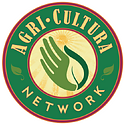 The Agri-Cultura Network (ACN) is a cooperative with nine member farms and thirty-three allied farms in communities around the South Valley area of Albuquerque, New Mexico. ACN provides access to local produce to promote nutrition and economic development through traditional and innovative agricultural practices, furthering environmental and community stewardship to strengthen the agrarian and cultural heritage of our land and its residents.
The Agri-Cultura Network (ACN) is a cooperative with nine member farms and thirty-three allied farms in communities around the South Valley area of Albuquerque, New Mexico. ACN provides access to local produce to promote nutrition and economic development through traditional and innovative agricultural practices, furthering environmental and community stewardship to strengthen the agrarian and cultural heritage of our land and its residents.
Los Jardines Institute
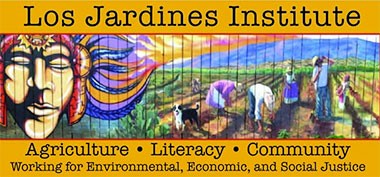
Los Jardines Institute (LJI) is a member farm of ACN, which distributes and markets their produce. LJI has been locally producing and selling organic produce for eight years. They build and support healthy and sustainable communities and spaces by providing multi-generational, community-based models of learning, sharing, and building community. They build support for rural and urban agriculture recognizing geographic, resource, human and species interdependence.
Health Care Without Harm
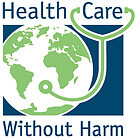 The Healthy Food in Health Care program of Health Care Without Harm (HCWH) works to harness the purchasing power, expertise, and voice of the health care sector to advance the development of sustainable food systems. We partner with over 1,000 hospitals nationwide, and work regionally to develop scalable models of community-based programming that engage anchor institutions in shifting procurement and investment towards building community health, wealth and climate resilience.
The Healthy Food in Health Care program of Health Care Without Harm (HCWH) works to harness the purchasing power, expertise, and voice of the health care sector to advance the development of sustainable food systems. We partner with over 1,000 hospitals nationwide, and work regionally to develop scalable models of community-based programming that engage anchor institutions in shifting procurement and investment towards building community health, wealth and climate resilience.
Natural Resources Defense Council
 The Natural Resources Defense Council (NRDC) is a national, not-for-profit environmental and public health membership organization with more than half a million members nationwide. NRDC engages in research, advocacy, media, public education, and litigation related to protecting public health and the environment. NRDC’s Healthy People & Thriving Communities Program puts people at the center of environmental work, with staff advocating for the right to clean air and water, healthy homes and food, and green space—especially in partnership with those who have suffered from disinvestment and inequitable distribution of resources.
The Natural Resources Defense Council (NRDC) is a national, not-for-profit environmental and public health membership organization with more than half a million members nationwide. NRDC engages in research, advocacy, media, public education, and litigation related to protecting public health and the environment. NRDC’s Healthy People & Thriving Communities Program puts people at the center of environmental work, with staff advocating for the right to clean air and water, healthy homes and food, and green space—especially in partnership with those who have suffered from disinvestment and inequitable distribution of resources.
Campaign for Healthier Solutions
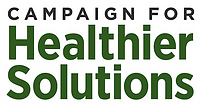 The Campaign for Healthier Solutions (CHS) is a campaign of the Environmental Justice Health Alliance and Coming Clean. CHS seeks to work with dollar stores, which often operate in communities that lack access to fresh and healthy produce, to help them protect their customers and the communities in which they operate by implementing corporate policies to identify and phase out harmful chemicals in the products they sell, and by stocking healthy, locally-grown foods.
The Campaign for Healthier Solutions (CHS) is a campaign of the Environmental Justice Health Alliance and Coming Clean. CHS seeks to work with dollar stores, which often operate in communities that lack access to fresh and healthy produce, to help them protect their customers and the communities in which they operate by implementing corporate policies to identify and phase out harmful chemicals in the products they sell, and by stocking healthy, locally-grown foods.
Just Transition Alliance
 The Just Transition Alliance was founded in 1997 as a coalition of environmental justice organizations and labor unions. Together with frontline workers and community members who live along the fence-line of polluting industries, we create healthy workplaces and communities. The Just Transition Alliance is a 501(c)3 organization based in San Diego, California.
The Just Transition Alliance was founded in 1997 as a coalition of environmental justice organizations and labor unions. Together with frontline workers and community members who live along the fence-line of polluting industries, we create healthy workplaces and communities. The Just Transition Alliance is a 501(c)3 organization based in San Diego, California.


